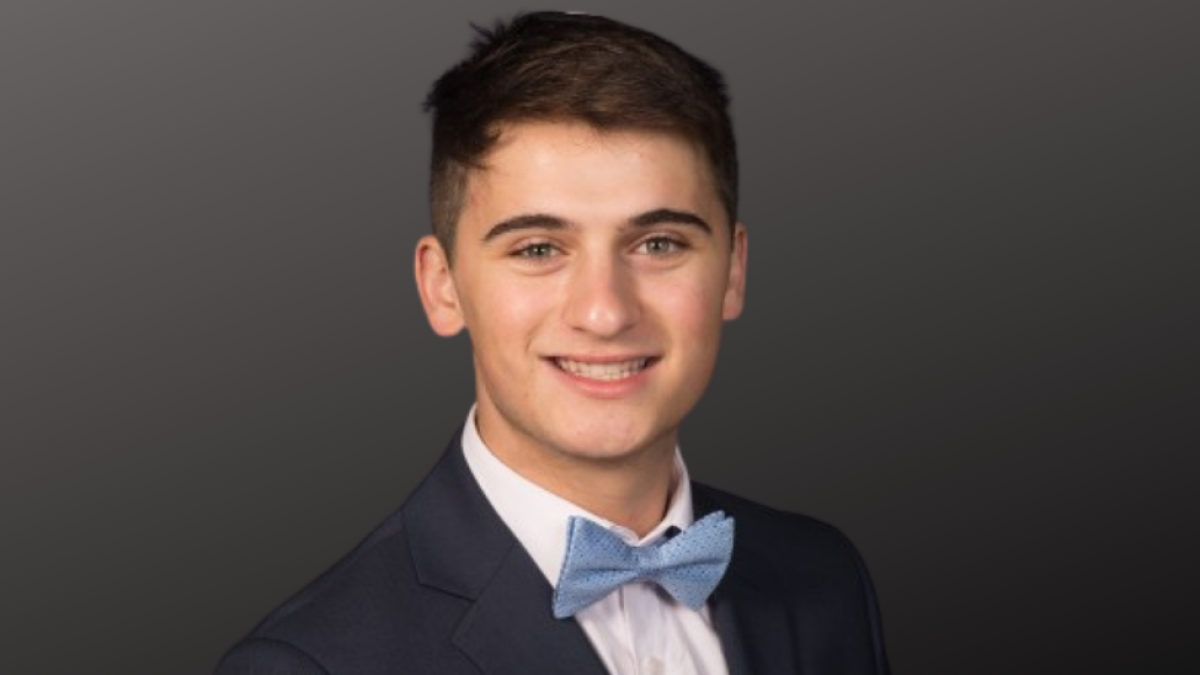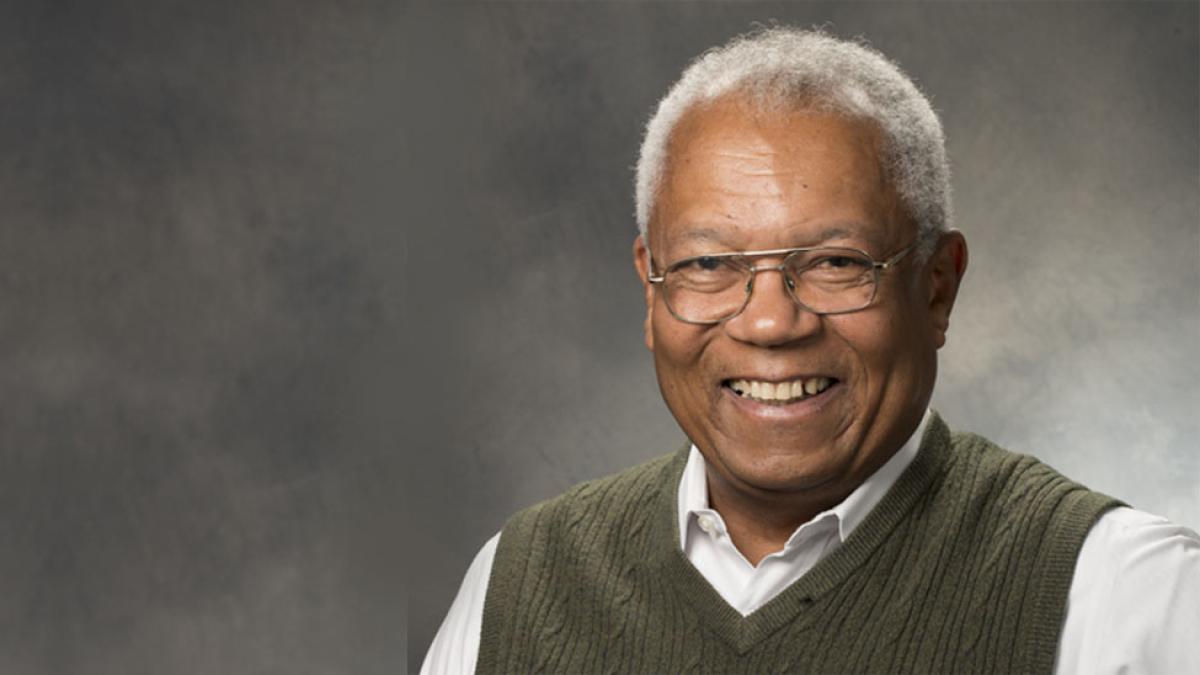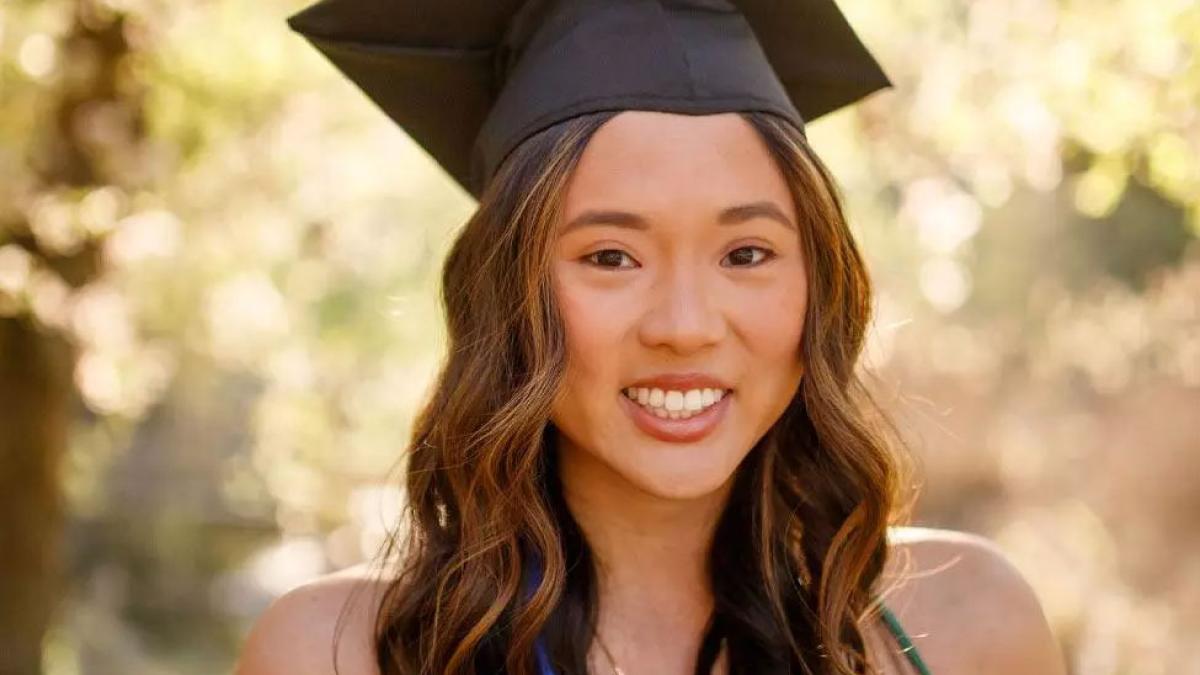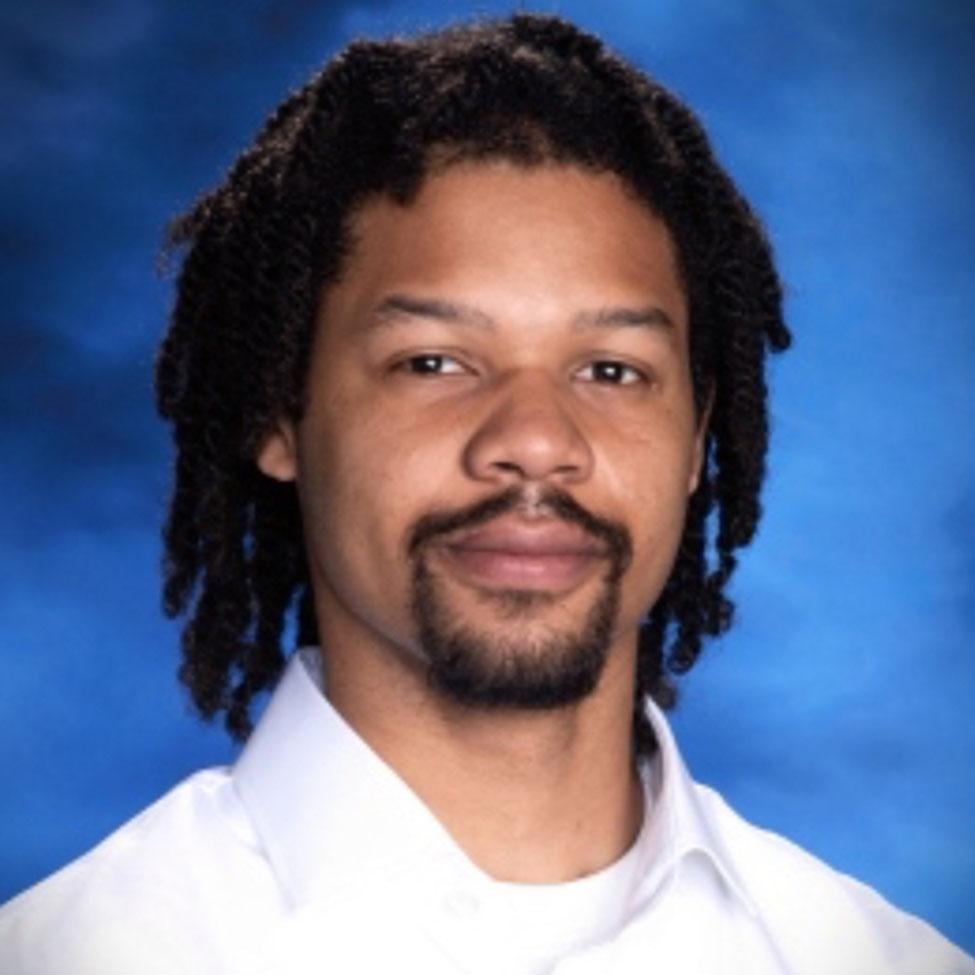
Management, Policies, Cybersecurity And Compliance
Law Professor John Bandler writes a piece in Reuters about management, policies, cybersecurity and compliance.
Taylor Swift's 'Tortured Poets Department' And When Lyrics About Dying, Grief, Heartbreak Trigger You
Dyson Professor Melvin Williams speaks with USA Today about Taylor Swift's new album "The Tortured Poets Department, "and when lyrics about dying, grief, heartbreak trigger you.
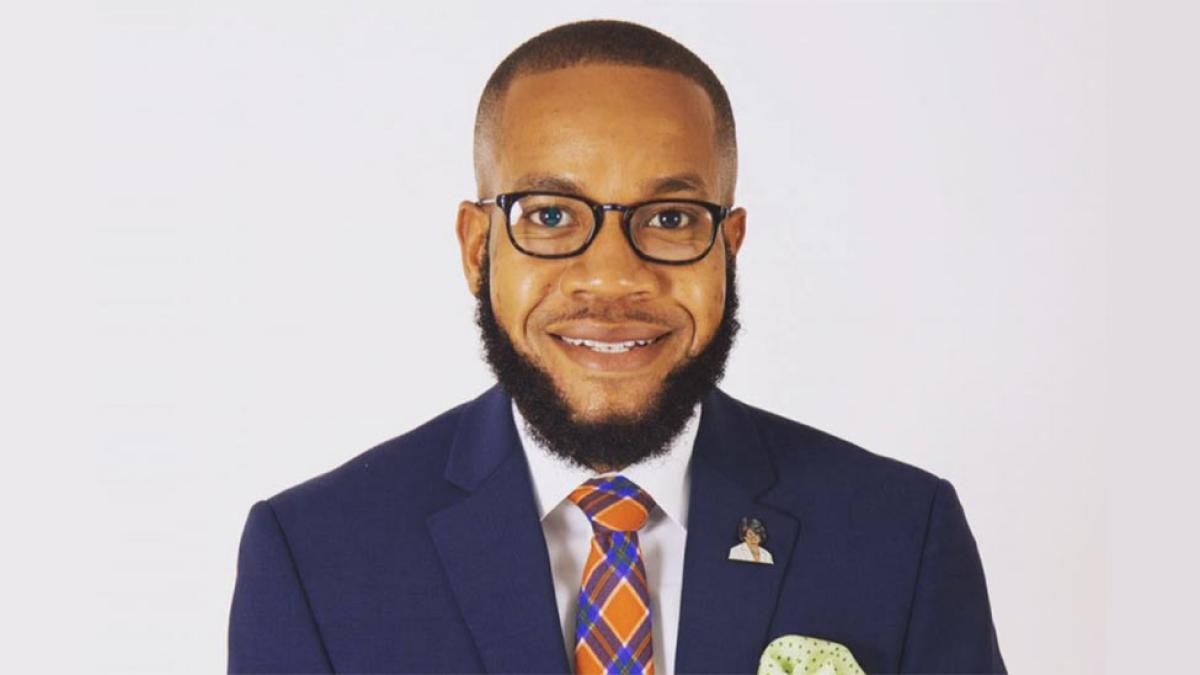
College-Bound Students in Limbo as Federal Aid Delays Cause Havoc
The Examiner mentions Pace University is offering $1,500 to students who complete their FAFSA application. Originally, the scholarship application deadline was February 15, but Pace extended its deadline first to March, and then to April.
Pace Pnd Fairfield Universities Cited In U.S. News And World Report Rankings
Westfair Communications (The Westchester and Fairfield County Business Journals) reports Pace University’s Elisabeth Haub School of Law is once again ranked No. 1 in the country for Environmental Law by the latest U.S. News and World Report rankings.
Media Explorer With Focus: Q+A with Osei Owusu-Afriyie Jr. '24
Digital journalism student Osei Owusu-Afriyie Jr. '24 shares insights on campus life, his experiences with the Media, Communications, and Visual Arts Department, and aspirations for his satirical magazine, Fountain.
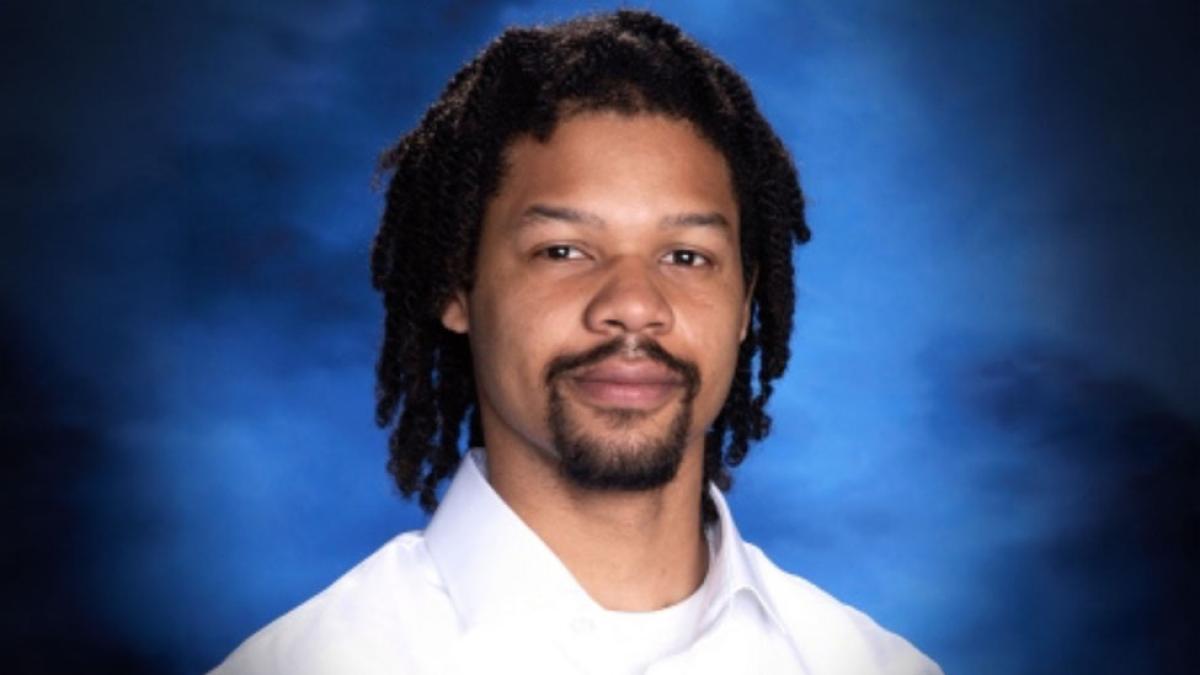

Osei Owusu-Afriyie Jr.
Class of 2024
How did you become interested in pursuing a BS in Digital Journalism?
I love photography so much. When I was in high school, I would always take the train up and down Manhattan, skating with my friends across the boroughs into Queens and Brooklyn. I would bring my Nikon camera with me and take candid photos of us doing tricks in the alleys in Chinatown and on full-day adventures in Bushwick and Jackson Heights. I love exploring new places and meeting new people, so pursuing a degree in digital journalism to share my work with the world felt natural.
Why did you choose to attend Pace?
I chose to attend Pace because I wanted to experience college on a campus with open spaces, nature, and a vibrant community. I think it’s cool to have two campuses, one in New York City and one in Pleasantville, which allows me the opportunity to instantly jump into the bustling city life, while also retreating into a calm, serene Empire State of mind. The social atmosphere is inviting, the academics are rigorous, and the people are engaging. In addition, I am the second generation in my family to attend Pace. When I found out my dad went to Pace, I was ecstatic to continue the legacy of being a Setter. He didn’t attend the Pleasantville campus, so I would be trailblazing the way to greatness in Westchester County. In the last four years, it has been a blessing to continue my education at Pace with friends and family supporting me. Go Setters!
What have your experiences been like with the Media, Communications, and Visual Arts Department? What faculty have been instrumental in your journey?
I love the Media, Communications, and Visual Arts Department. I’ve never met such fun, hardworking people anywhere than right here in Pleasantville. When it comes to making movies and writing stories, the students and faculty come together like one big family to make it happen. Throughout my journey here at Pace, I’ve gotten to know so many experienced and talented faculty such as professors Kate Fink and Paul Ziek.
I chose to attend Pace because I wanted to experience college on a campus with open spaces, nature, and a vibrant community. I’ve never met such fun, hardworking people anywhere than right here in Pleasantville.
What activities and organizations have you been involved with as a student?
This year, I joined The Pace Chronicle and I love writing for our student newspaper. I never really joined clubs during my time at Pace until my last year, but I feel that the Chronicle is one of the most inclusive groups on campus. Everyone gets to pitch a story, pursue a lead, and have fun. I think that the supportive and friendly atmosphere of the MCVA Department is something that nourishes the tired soul of a Setter in their senior year quite well. Currently, I am working as a podcasting intern on the What’s Pleasant? podcast, a faculty-led, student-run podcast focusing on campus events and student life in Pleasantville.
What would you like to do upon graduation/what are your career goals?
Recently, I’ve started my own digital publication called Fountain, a satirical magazine about skateboarders and their unorthodox lifestyles in New York City. I would like to work alongside Pace alumni at News 12 after I graduate. My goal is to enroll in Pace’s online MA in Communications and Digital Media and eventually focus on Fountain full-time.
What advice would you like to give to our current students?
Explore everything you want to do and immerse yourself in campus life. Four years go by incredibly fast, so enjoy your time here and make the most of it. Also, remember that college isn’t the only time in your life when you’ll have the most fun. If you’re doing it right, life will continuously get better. Take time to relax, do your homework, and make new friends.
Pace University to Premiere The Cooper Documentary at Jacob Burns Film Center
Pace University’s documentary film team – PaceDocs – is set to premiere “The Cooper: Crafting the Soul of the Cask” at 7:00 p.m. on Thursday, May 2, 2024 at the Jacob Burns Film Center.
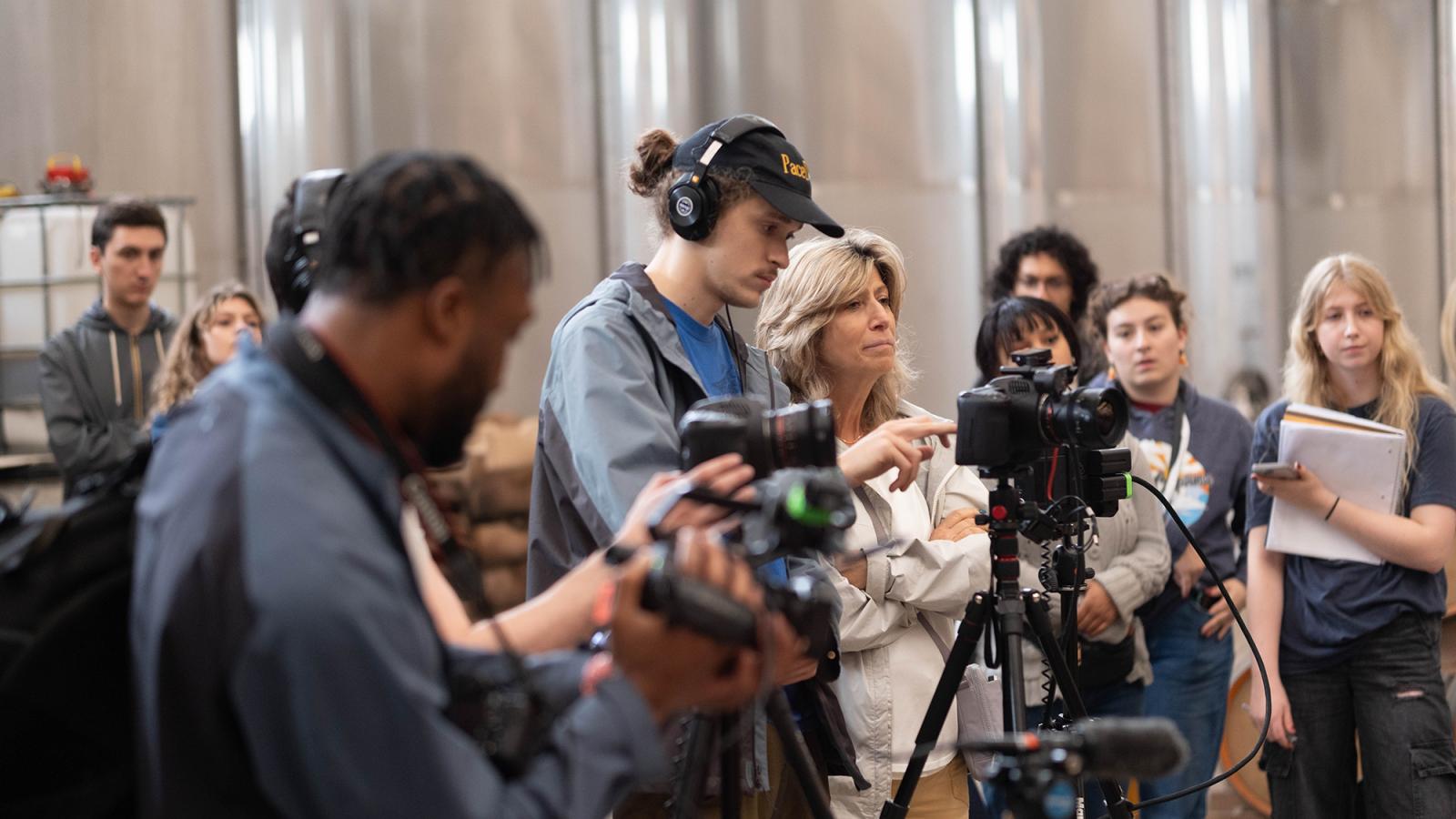
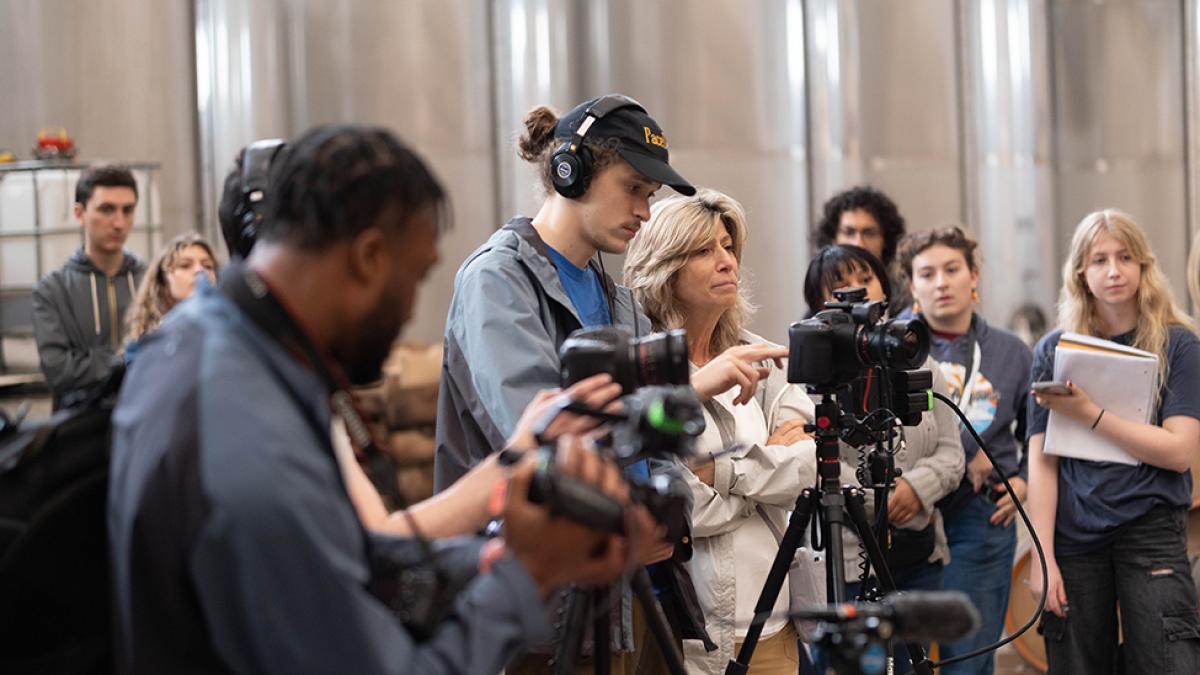
The PaceDocs Team focuses film on the craft of barrel making
For the first time, documentary will premiere in English and Spanish
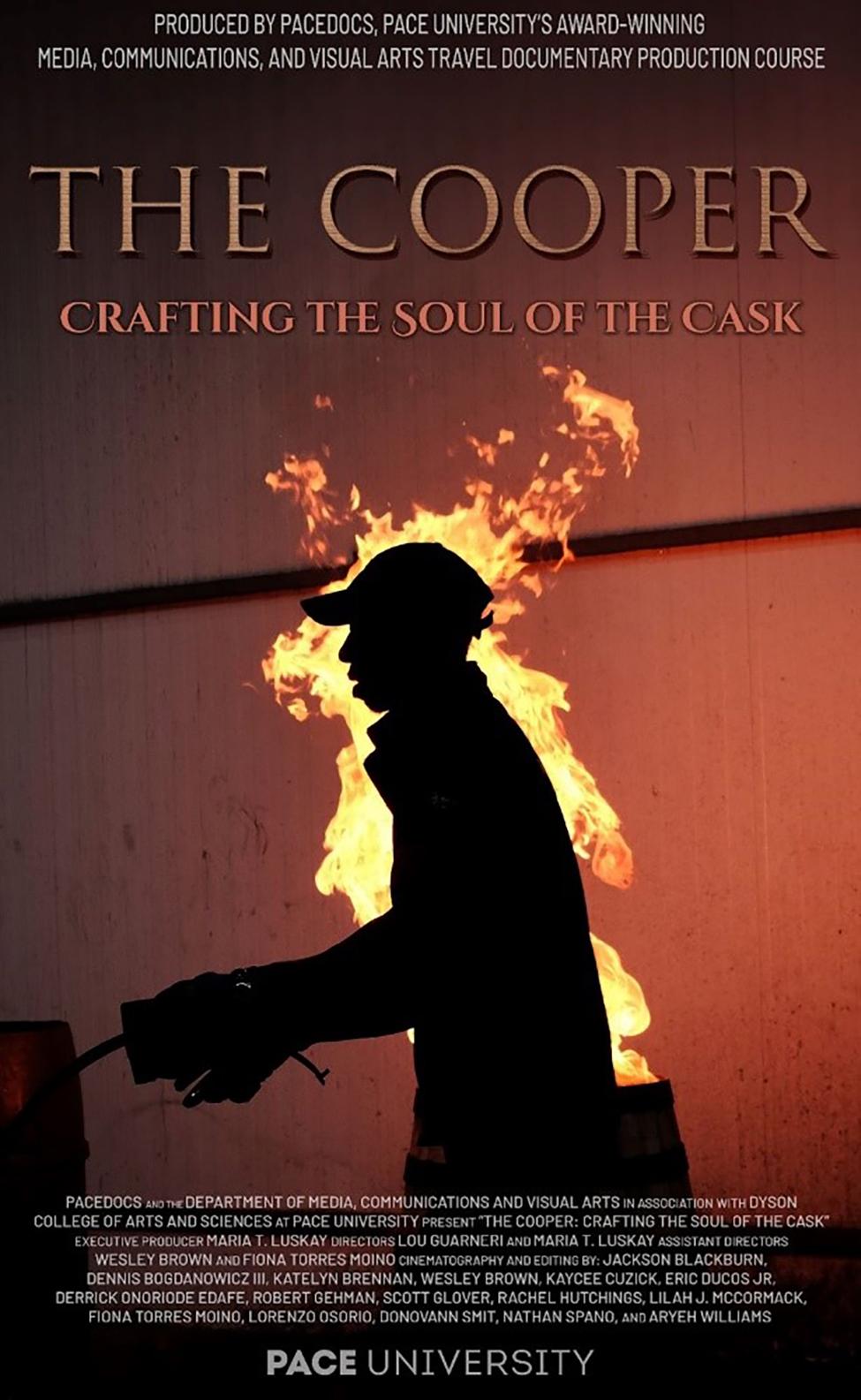
Pace University’s documentary film team – PaceDocs – is set to premiere “The Cooper: Crafting the Soul of the Cask” at 7:00 p.m. on Thursday, May 2, 2024 at the Jacob Burns Film Center.
For the first time ever, PaceDocs will be premiering a documentary in both English and in Spanish. The English version will premiere at the Jacob Burns Film Center while the Spanish version will debut in Montilla and Cordoba, Spain.
The documentary was produced by Dyson College of Arts and Sciences Professors Maria Luskay and Lou Guarneri, and Pace University’s documentary film team.
The PaceDocs team collaborated with José Buendía Picó, a well-known Spanish musician and composer, to provide the music to an audiovisual story. Pico has won 14 composition awards.
Tickets for the reception and screening are available, though space is limited. (Use code PaceDocs24 for free tickets.)
“The Cooper” is an exploration of the art of cask making, also known as cooperage. Its rich history that can be traced back to ancient civilizations, with evidence of wooden containers used for storing and transporting liquids found in archaeological sites dating as far back as 2690 BCE in Egypt. The type of cask and the type of wood used in winemaking can significantly influence the taste, aroma, and characteristics of wine in Spain, as in other winemaking regions around the world.
The documentary was filmed in the Andalusian region of Spain, specifically Montilla-Moriles over the course of several weeks.
“The PaceDocs team, under the leadership of Professor Maria Luskay, has once again produced a professional, fascinating and timely film,” said Marvin Krislov, president of Pace University. “ ‘The Cooper’ is another great example of the hands-on experience that uniquely captures the tradition and rich history of cask making. I marvel at the consistent excellence and talent in this program and am impressed by this group of filmmakers.”
The documentary is the focus of the popular class, “Producing the Documentary”, which is part of the Dyson College of Arts and Sciences at Pace University’s highly regarded film program that requires students complete a full-length environmentally themed documentary within 14 weeks. During the process, students learn teamwork, problem-solving, research, and organization, along with technical skills such as lighting, sound, camera work, interviewing, and other real-life lessons necessary to complete a film.
“Sharing this immersive experience with our students is incredibly rewarding and educational for all that are involved,” said Professor Luskay, a faculty member with the department of media, communications, and visual arts. “In addition to filming on-location in Spain and learning about difficult cultures, our team was tasked with producing, filming, and editing a professional quality documentary on the tightest of timelines. The lessons and the memories will no doubt last a lifetime and serve them well in their professional pursuits.”
A blend of graduate and undergraduate students, they were moved by the experience of working on and producing a film of professional quality.
“As with all of us in the class, I wore many hats on this project,” said Rachel Hutchings, a communications and digital media graduate student from Nashville, TN. “In Spain, we all had the opportunity to be on the camera and it was my first time doing so, but it was a great feeling to come up with a shot and execute it well. Being in Spain was incredible. Being able to soak in the culture, meet coopers so passionate about their jobs, and work well with the team to produce a documentary that celebrates the tradition and beauty of the region was incredibly gratifying.”
Lorenzo Osorio, a junior majoring in digital cinema and filmmaking from Dumont, N.J., played an important and unique role on set.
“My primary roles were on-location translator and editor,” said Osorio. “I was one of only three people that spoke Spanish fluently on the trip, so I felt like I was contributing something unique to the film. Aside from basic interpreting, I especially had to be involved in interviews, either conducting them or scribing notes.”
“The Cooper” continues a proud tradition of producing high quality, meaningful, andaward-winning films. In recent years, Pace filmmakers have produced documentaries around the globe focusing on a number of topics, including the farm-to-table food movement in France (2023); how oysters depend on the ebb and flow of tides (2022); the importance of bees as pollinators in our food supply (2021); the impact of earthquakes in Hawaii (2019); the endurance of the people of Puerto Rico in the aftermath of Hurricane Maria (2018); Cuba at a cultural crossroads (2016); reviving Curacao’s coral reefs (2015); as well as many other poignant films.
“Dyson College’s student filmmakers have produced another moving documentary that delves into the important and fascinating history of cask making,” said Tresmaine R. Grimes, dean, Dyson College of Arts and Sciences and School of Education and interim dean for the Sands College of Performing Arts. “The students learn and perfect their craft while educating us all. I am so moved by the talents of this team and the compelling film they have made. Congratulations to them and Professors Luskay and Guarneri for another impressive PaceDocs production.”
About Pace University
Since 1906, Pace University has been transforming the lives of its diverse students—academically, professionally, and socioeconomically. With campuses in New York City and Westchester County, Pace offers bachelor, master, and doctoral degree programs to 13,600 students in its College of Health Professions, Dyson College of Arts and Sciences, Elisabeth Haub School of Law, Lubin School of Business, Sands College of Performing Arts, School of Education, and Seidenberg School of Computer Science and Information Systems.
About Dyson College of Arts and Sciences
Pace University’s liberal arts college, Dyson College, offers more than 50 programs, spanning the arts and humanities, natural sciences, social sciences, and pre-professional programs (including pre-medicine, pre-veterinary, and pre-law), as well as many courses that fulfill core curriculum requirements. The College offers access to numerous opportunities for internships, cooperative education and other hands-on learning experiences that complement in-class learning in preparing graduates for career and graduate/professional education choices.
Innovating for Tomorrow: Seidenberg Students Ignite Change at the NY Climate Exchange AI Innovation Challenge
On April 21, the Seidenberg School of Computer Science and Information Systems at Pace University hosted a local kickoff for the 2024 NY Climate Exchange AI Innovation Challenge.
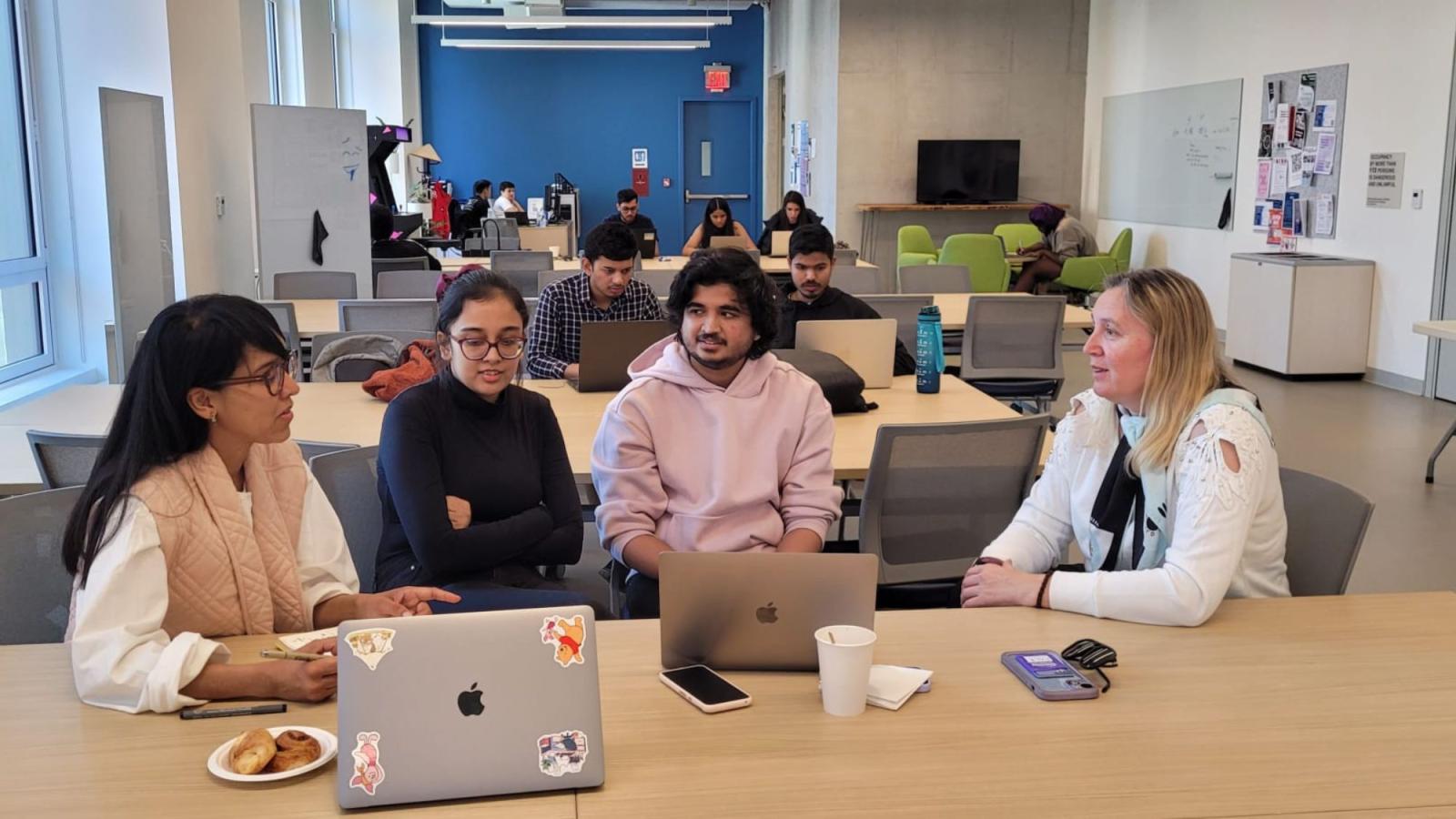
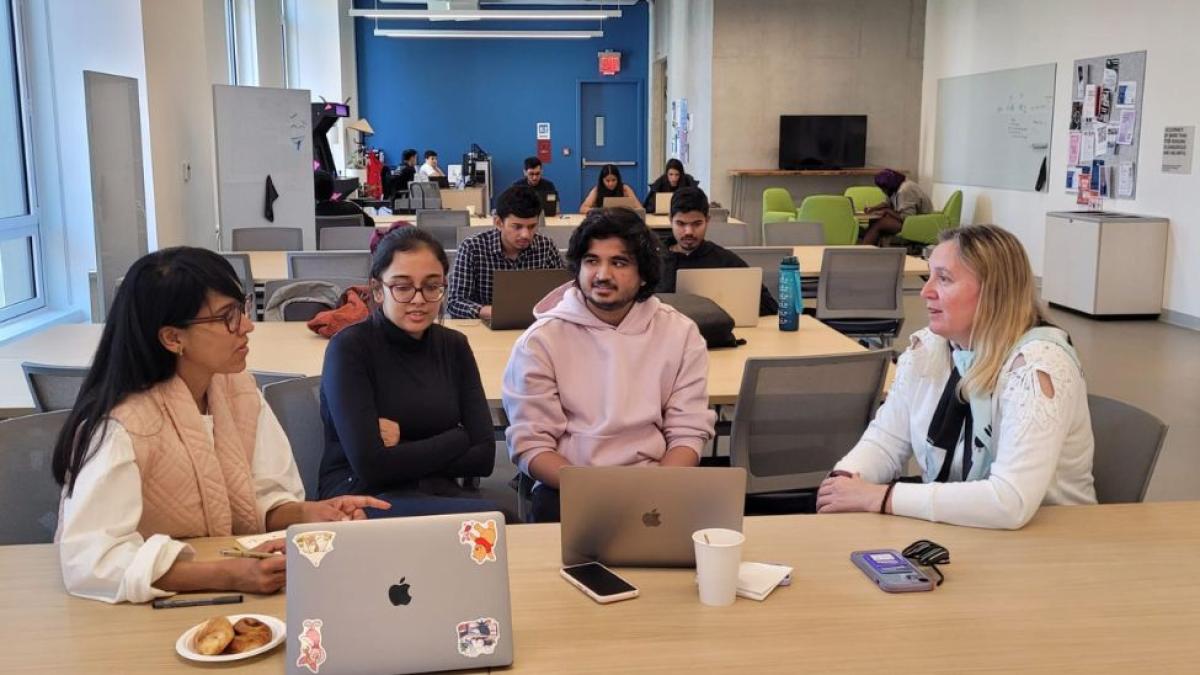
On April 21, the Seidenberg School of Computer Science and Information Systems at Pace University hosted a local kickoff for the 2024 NY Climate Exchange AI Innovation Challenge. This event, led by Seidenberg's AI Lab co-directors Christelle Scharff and Katie Todd, introduced Pace students to a significant opportunity to engage with a global issue—stormwater management. As climate change intensifies, severe weather is greatly impacting cities around the world. Innovative solutions are crucial for mitigating the impact on urban infrastructure.
Throughout the challenge, students employ artificial intelligence to devise practical solutions that can be implemented not only in New York City but across other urban environments facing similar challenges.
The New York Climate Exchange has initiated this challenge in partnership with partners City University of New York, Duke University, Georgia Institute of Technology, Good Old Lower East Side (GOLES), IBM, Moody’s, New York University, Pace University, Rochester Institute of Technology, Stony Brook University, and the University of Washington. Participating students will have access to advanced tools like IBM’s watsonx.ai technology and the Call for Code platform; Moody’s’ insights and datasets; and GOLES’s community touchpoints. This provides a unique opportunity to translate theoretical knowledge into practical, impactful technological solutions.
The kick-off event was not just a demonstration of technological potential but also a celebration of the community and collaborative efforts. The deadline for team registrations is swiftly approaching on April 30th, with the next phase of the project leading to a presentation in October where finalists will present their solutions at the New York Exchange.
As we move forward, we invite all eligible students to register and participate in this extraordinary learning and development opportunity. Whether you are from a computer science, engineering, or interdisciplinary background, your unique skills and perspectives are invaluable. Join us in creating real-world solutions that not only address key environmental challenges but also pave the way for future innovations.
For more information and to register your team, please visit NY Climate Exchange AI Innovation Challenge Registration. Submissions are due on April 30, so move quickly!
Together, let's innovate for a sustainable future.
Pace University Professor Receives Fulbright Specialist Award
Professor Claudia G. Green, Ph.D., RD, a professor of Management and director of Hospitality and Tourism Management at the university’s Lubin School of Business, has received a Fulbright Specialist Program award, Pace University today announced. It marks the second time Green has been a recipient of a Fulbright award.
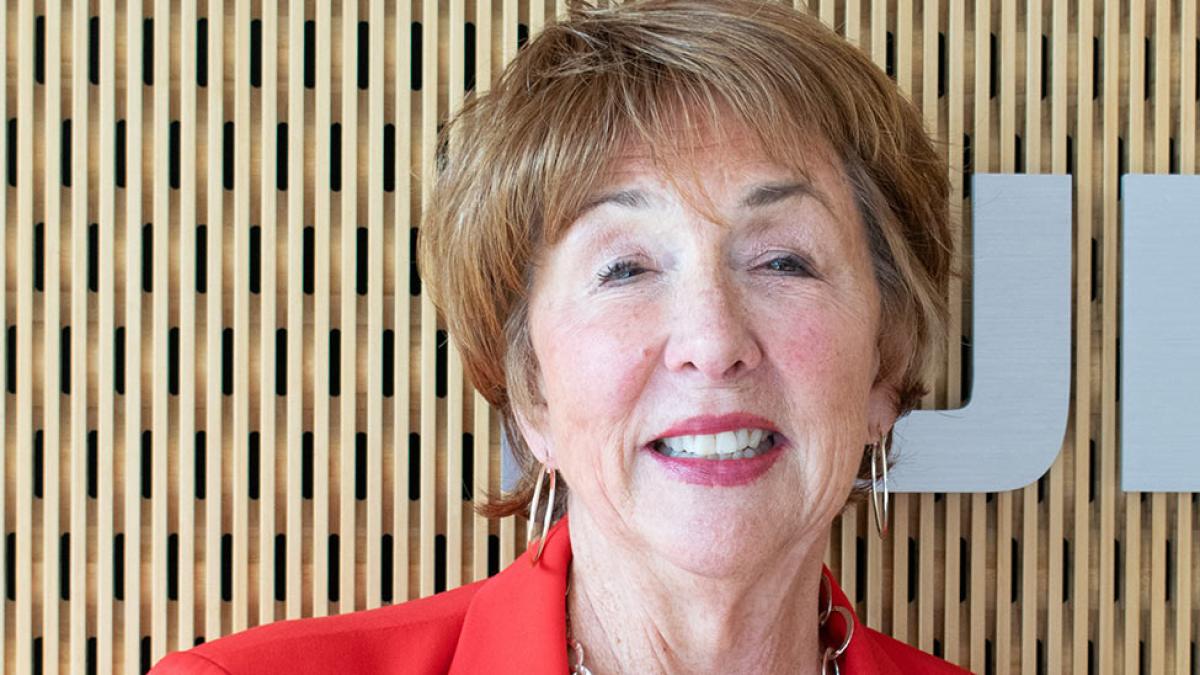
Professor Claudia Green to Conduct Study on Agritourism in Spain
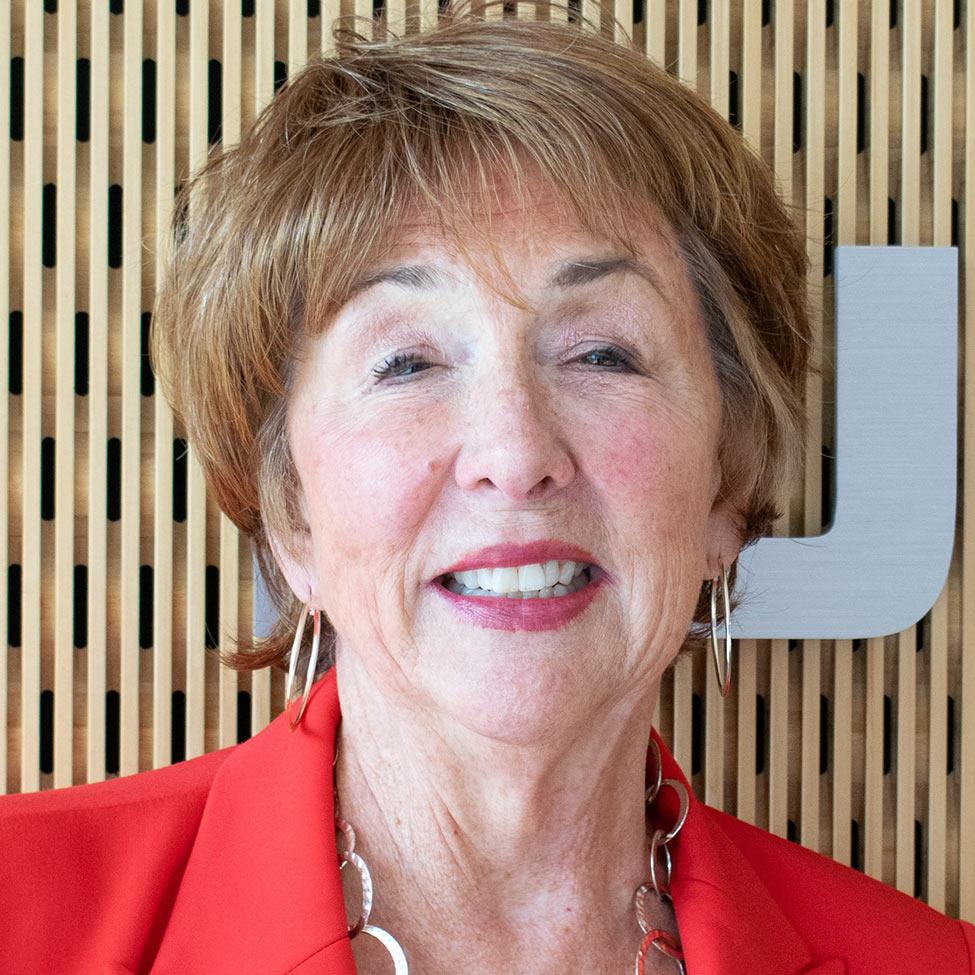
Professor Claudia G. Green, Ph.D., RD, a professor of Management and director of Hospitality and Tourism Management at the university’s Lubin School of Business, has received a Fulbright Specialist Program award, Pace University today announced. It marks the second time Green has been a recipient of a Fulbright award.
The Fulbright Specialist Program sends U.S. faculty and professionals to serve as expert consultants on curriculum, faculty development, institutional planning, and related subjects at academic institutions abroad for two to six weeks. Fulbright Specialists are a diverse group of highly experienced, well-established faculty members, and professionals who represent a wide variety of academic disciplines and professions.
“I feel very honored to be recognized yet again for my contribution to furthering understanding and collaboration with international colleagues in Brazil, Cambodia, and now in Spain,” said Green. “It reaffirms the importance of international relations and sharing of knowledge.”
Green will complete her project over the course of 30 days at the Universidad de Seville in Spain, where she will be working with colleagues to conduct a project on the economic, social, and environmental importance of agritourism to Andalusia, which is in the southern region Spain.
The project will include identifying agritourism businesses, the development of an interactive map of agritourism businesses, and a needs assessment with the agritourism entrepreneurs to identify their needs in terms of education and training of professionals in the sector to help get them to get better results and to improve the rural economic development.
“We are delighted to hear of this well-deserved honor for Professor Green,” said Katherine Richardson, Ph.D., associate dean of Graduate Programs Professor and Management and Management Science Department at the Lubin School of Business. “She has been the Director of the Hospitality and Tourism Management Program at Pace for over 20 years, and during this time has worked on multiple international research projects focused on sustainable tourism and social entrepreneurship. This is a great example of how our Lubin faculty engages in educational activities that make a positive impact on society, not just within our local community but global communities as well. Professor Green will be a wonderful ambassador for the Lubin School of Business and Pace University.”
Seven years ago, Green was a Fulbright Specialist in the Kingdom of Cambodia, where she collaborated with tourism professionals, anthropologists, archeologists, and tour guides of the Temples of Angkor Wat. Their goal was to examine the problem of over-tourism and strategies for managing it.
Green has taught at Pace for over 25 years and is a resident of the Soho neighborhood of Manhattan.
About the Lubin School of Business
Globally recognized and prestigiously accredited, the Lubin School of Business integrates New York City’s business world into the experienced-based education of its students at Pace’s suburban and downtown campuses, implemented by one of the region’s largest co-op programs, team-based learning, and customized career guidance. Its programs are designed to launch success-oriented graduates toward upwardly mobile careers.
About Pace University
Since 1906, Pace University has been transforming the lives of its diverse students—academically, professionally, and socioeconomically. With campuses in New York City and Westchester County, Pace offers bachelor, master, and doctoral degree programs to 13,600 students in its College of Health Professions, Dyson College of Arts and Sciences, Elisabeth Haub School of Law, Lubin School of Business, Sands College of Performing Arts, School of Education, and Seidenberg School of Computer Science and Information Systems.
Building a Community for Finance Students On Campus
After recognizing the need for an on-campus organization dedicated to students interested in finance, Bailey Mullen jumped into action to quickly create one. Since establishing the Undergraduate Finance Club, Bailey and his e-board have hosted weekly events focused on preparing students for successful careers in finance.
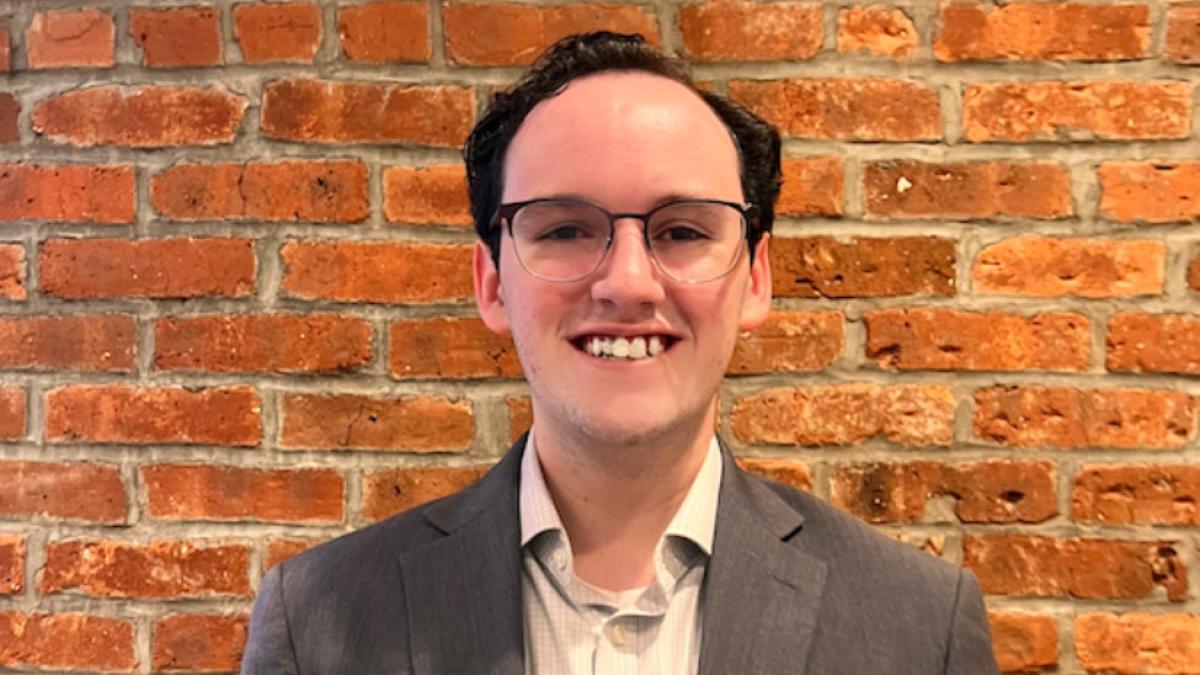
Bailey Mullen
Class of 2026
Currently Studying: BBA in Finance
Member Of: Undergraduate Finance Club (President) and Zeta Beta Tau (Finance Director)
Pronouns: He/Him
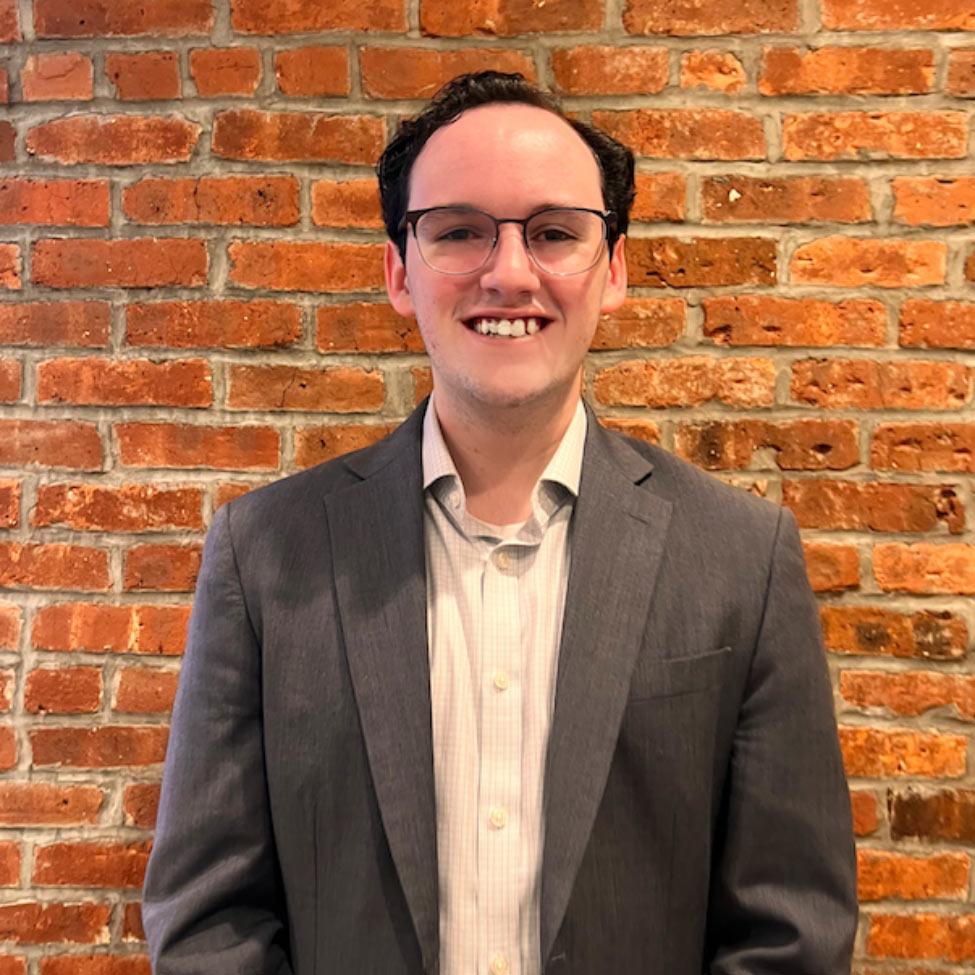
After recognizing the need for an on-campus organization dedicated to students interested in finance, Bailey Mullen jumped into action to quickly create one. Since establishing the Undergraduate Finance Club, Bailey and his e-board have hosted weekly events focused on preparing students for successful careers in finance.
Why did you choose Pace University and the Lubin School of Business?
My choice of Pace University stemmed from the desire to immerse myself in the world's largest financial hub, New York City. Attending Pace and the Lubin School of Business in NYC has offered unparalleled opportunities that other institutions couldn't match.
How have clubs on campus helped enrich your student experience?
Being involved in campus clubs has allowed me to establish a supportive network and forge valuable connections within my field. It has significantly enriched my time here at Pace.
You founded Pace University‘s Undergraduate Finance Club. What motivated you to start this club?
I recognized the need for a community focused on finance enthusiasts and professionals-to-be, so I founded the Undergraduate Finance Club to provide students with networking opportunities and industry insights crucial for their career journeys, especially in the competitive internship landscape.
Why is it important to teach students about finance through your club?
Establishing a space for individuals passionate about finance fosters a community of learners and professionals. I aim to share my enthusiasm for the intricacies of finance and provide avenues for students to connect with industry leaders to gain knowledge to land those hard-to-get internships.
You are also the Finance Director for Pace University‘s chapter of Zeta Beta Tau. What have you learned in this role?
Serving in this role has honed my management and organizational skills, fostering a sense of fulfillment through collaborative goal achievement. I have had the opportunity to work to gain practical analysis skills as Finance Director and gained a group of friends for life.
How have your Lubin classes helped prepare you for your on-campus positions?
Lubin's curriculum has equipped me with the knowledge and confidence necessary for leadership roles in campus organizations, backed by unwavering support from the faculty. Additionally, the courses have laid the framework of a combination of soft and hard skills necessary to succeed in the workplace, mainly learning how to successfully work in groups.
Describe your experience as a Universal Banker at Citi.
My tenure as a Universal Banker at Citi taught me effective time management and customer service skills in a fast-paced environment. Working alongside a supportive team, I learned the resilience essential for a career in finance, balancing a full-time class schedule with extensive work hours.
What has been your favorite opportunity at Pace?
Among my various roles, organizing an event featuring hedge fund manager Bill Ackman stands out as a thrilling opportunity due to the numerous moving parts and large team facilitating the event.
With support from Lubin and Career Services, the event garnered a large attendance, and as the moderator, I was able to develop and ask interesting and engaging questions.
Do you have any advice for other Lubin students?
Get involved early, network diligently, and maintain an updated resume. Don't hesitate to seek guidance from professors - leverage their invaluable real-world insights.
What does #LubinLife mean to you?
#LubinLife embodies a comprehensive educational experience, blending academic rigor with exposure to the finance industry. Lubin serves as both a support system and a gateway to success.
Tips for Your Summer Internships (and how to get the next one!)
It’s internship season. Check out these Career Services tips for finding opportunities, making the most of them, and setting yourself up for next year. And if you’re a recent grad, we’ve got some helpful hints for you, too!
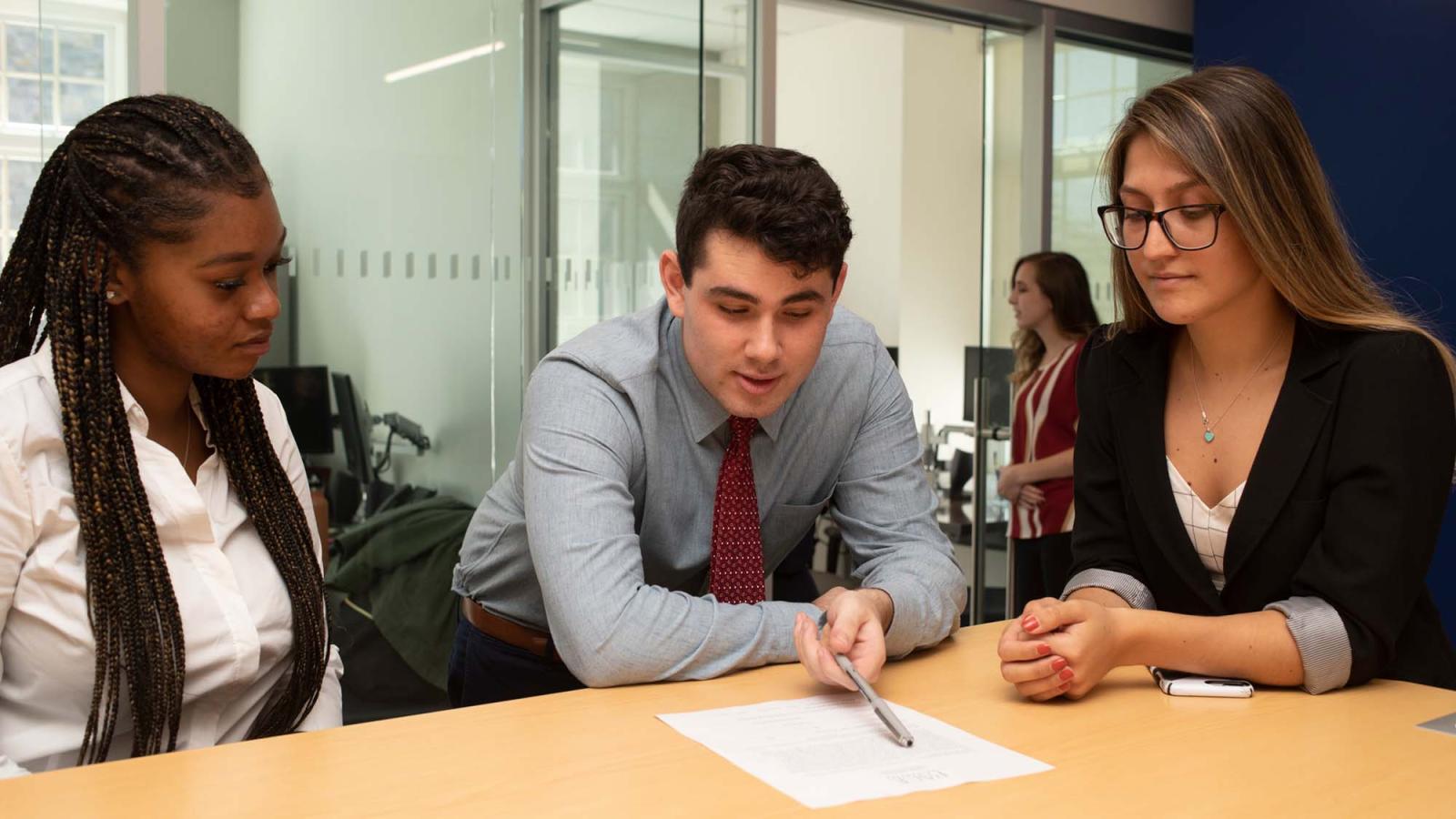
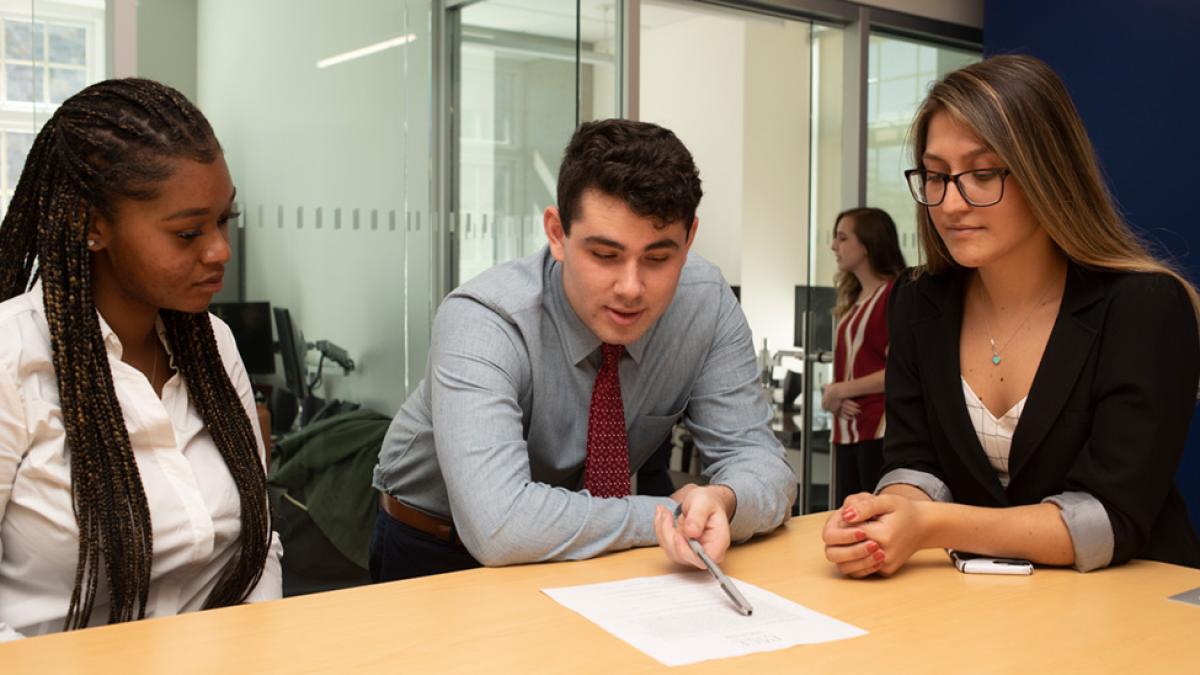
It’s internship season. Check out these Career Services tips for finding opportunities, making the most of them, and setting yourself up for next year. And if you’re a recent grad, we’ve got some helpful hints for you, too!
1. Set clear goals and get feedback
Internships and work opportunities are more than talking points at your next interview. They are opportunities to learn on-the-job skills, gain professional development, and actively improve. Before you begin, consider exactly what skills—professional, social, and interpersonal—that you’d like to develop.
Once you’ve pinpointed what you’d like to learn, don’t be shy. Be candid with your supervisors and colleagues what you hope to learn from them and ask for feedback. Not only will you get more from your time and open up learning pathways that might not have been available before, but you’ll also develop stronger working relationships.
2. Network, Network, Network
Who you know is always an important aspect of the professional world. Keeping your LinkedIn up-to-date helps potential employers get to know you and can potentially serve as a point of contact for those in your industry you have not met in person. Though online connections are important, the longer lasting ones will be the connections you make in the field, with colleagues and fellow interns. And finally, lean on your Pace Community. Pace faculty and alumni mentors are connected to experts worldwide and maintaining those ties may lead to new ones. If you’re a recent alumnus, dive into the Pace Alumni Association, where fellow alumni can lift you up and get you connected.
3. Invest in Yourself
In a world where much of the workspace is engaging virtually, the usual concept of ‘office space’ has radically changed. With our work now taking up time and space in our homes, it’s more important than ever to cultivate spaces that work for us. Take the time to assess your working needs and find a way to carve out space so that you can not only focus while working from home but can also unplug once the day is done.
And for those working in-person, the age-old adage ‘dress for the job you want’ continues to ring true. Stock your closet with clothes that will help you make the best impression.
And if you’re spending money, save those receipts—when tax season returns, every write-off counts.
4. Join Handshake and Utilize Career Services Resources
Career Services is dedicated to offering career prep workshops, career fairs, employer spotlights, and other services to empower you to jump into the working world. Attend the Virtual Career Fair for Recent Graduates, attend a Career Counselor Q&A, or practice your interview skills and fine tune your cover letter. These events are designed to help you plan your next step, hone your skills, and stand out from the crowd. Check out all of the upcoming events on Handshake and the career services event calendar. And don’t forget, recent grads, Career Services is here to help you, too!
5. Volunteer
If you’re still making summer plans, or hoping to fill up your free time, there are always opportunities to volunteer. The Center for Community Action and Research lists several options for community engagement, political participation, and other employment and leadership opportunities. Not only is serving your community important, but volunteering offers you the chance to pick up new skills, network, and discover new passions.
More from Pace
Before enrolling at Pace University in the fall of 2021, Max Schillinger was already building a business. But thanks to the resources within the Lubin School of Business, he was ready to build his second business and start a new on-campus organization before even wrapping up his freshman year.
We interviewed Dr. Coggins of the Management and Management Science Department, who joined Pace 12 years ago. A retired U.S. Navy Commander with sea-going, international, and diplomatic service, he spoke about his naval career, research interests, teaching style, and how he became an international expert within the cruise/maritime industry.
Nursing student Kalin Tang '22 traveled around the world and found herself at Pace University’s Lienhard School of Nursing. Kalin and her family lived in countries like Hong Kong, Korea, and Thailand, and also in several states throughout the United States.
